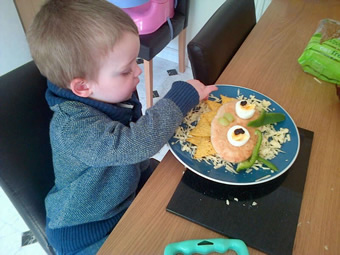Curiosity
Millions saw the apple fall, but Newton asked why.
Bernard Baruch
Curiosity is directly connected to understanding. Who is this child we are accepting? When we curiously explore within a relationship, we are expressing interest in the other & a desire to know him/her more deeply. When we direct non-judgemental curiosity toward the experience of a child, they are likely to become responsive to understanding this experience of self, other, or events in relationship with us. In sharing our experience, we know it more deeply. The child experiences with another rather than alone. The child becomes open to relationships & becomes stronger in the process.

Curiosity refers to the open stance where by each member is encouraged and assisted in exploring their inner life more fully and openly. There are no preconditions about what one should think, feel, want, or perceive. It is the “not knowing” stance without assumptions that today’s experience must be similar to yesterday’s experience. When a person has been able to ‘uncover’ a reason for his/her behaviour, often this is only the first step. Curiosity leads that person to look under that reason for another, and another if necessary, searching for reasons that reflect aspects of the narrative. These reasons reflect the strengths and/or vulnerabilities that lie under any problems or defences. Curiosity does not involve a ‘rational;’ uncovering of facts. Curiosity does involve an active, reflective stance that leads to the co-creation of experience. And it reflects the therapists/parents deep fascination with the/their child.
(Taken from PACE: Dan Hughes)
← Back to Resources